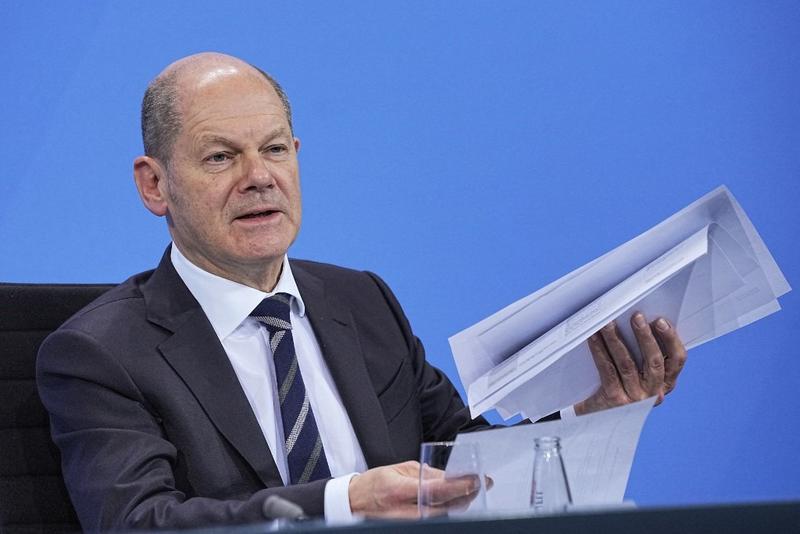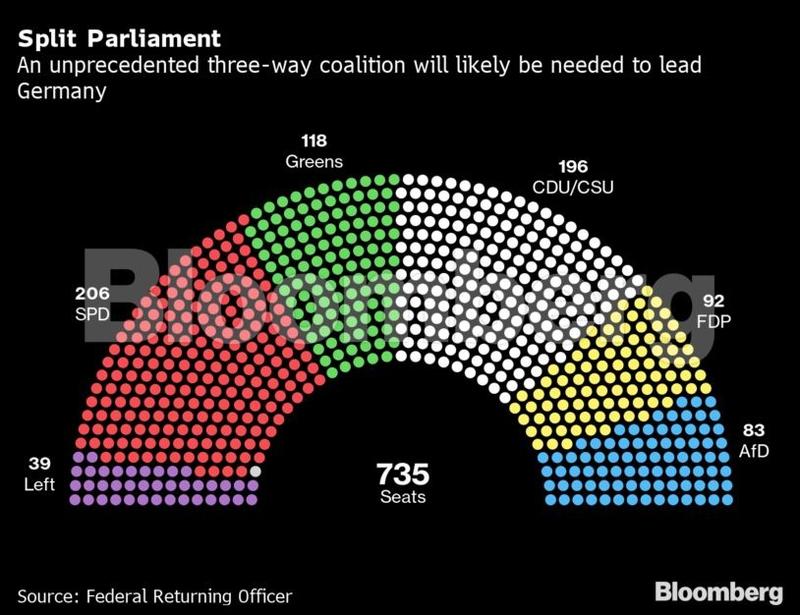 German Finance Minister and candidate for Chancellor Olaf Scholz addresses a press conference following a video meeting with the heads of government of Germany's federal states at the Chancellery in Berlin on Nov 18, 2021. (MICHAEL KAPPELER / POOL / AFP)
German Finance Minister and candidate for Chancellor Olaf Scholz addresses a press conference following a video meeting with the heads of government of Germany's federal states at the Chancellery in Berlin on Nov 18, 2021. (MICHAEL KAPPELER / POOL / AFP)
Germany’s next government under Olaf Scholz as chancellor is taking on more defined contours, with key posts all but filled.
Christian Lindner — the head of the pro-business Free Democrats — would be tapped as finance minister, and Robert Habeck — co-leader of the Greens — would become a “super minister” in charge of economy, climate protection and energy transition. Both would also be vice chancellors, according to a preliminary list of cabinet posts obtained by Bloomberg.
Annalena Baerbock, the Greens’ former chancellor candidate, would be foreign minister. She has campaigned for an activist, morals-based foreign policy and has repeatedly criticized China for human rights violations and opposes Russia’s Nord Stream 2 gas pipeline. She would be the first female top diplomat of Europe’s biggest economy.
Ministry assignments are among the last major decisions in the coalition talks between Scholz’s Social Democrats and the two junior partners, and the list indicates talks are far advanced.
Negotiations are continuing on Monday, with senior officials focusing on the remaining 20 to 30 issues where they still have to bridge differences, according to another person close to the talks
ALSO READ: Scholz takes key step in bid to become next German chancellor
Traditionally, the posts are divided among the parties, which then decide internally who fills the positions. The personnel assignments therefore may not be definitive and could still change before the coalition talks between the SPD, Greens and FDP are finalized, according to a person familiar with the discussions.
Negotiations are continuing on Monday, with senior officials focusing on the remaining 20 to 30 issues where they still have to bridge differences, according to another person close to the talks.
Scholz is aiming to be sworn in as chancellor to replace Angela Merkel during the week starting Dec 6. A final coalition agreement is targeted for this week. The parties would then ask their members to sign off before the German parliament votes in the new government.
The three-way alliance has come together quickly by German standards, especially considering their policy differences. Scholz’s Social Democrats narrowly beat Merkel’s conservatives in the Sept 26 election, but the fragmented political landscape left little alternative to a coalition with the Greens and the market-oriented FDP.

Over the weekend, Scholz described the negotiations as “very good, very constructive” and said that they are “progressing rapidly.”
“Policy issues are being dealt with effectively and there are some good joint projects, and everything is also working on a human level,” Scholz said in an interview with DPA.
READ MORE: Scholz closer to leading post-Merkel Germany as talks start
“That’s also important if you plan to agree on a coalition accord, and then also form a government that will function well over a number of years,” he told the news agency.


